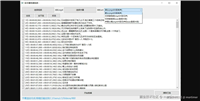一、整体架构:spring 类型转换体系
spring 提供了两套互补的类型转换机制:
| 模块 | 用途 | 特点 |
|---|---|---|
core.convert 包下的 converter spi | 通用类型转换(如 long ↔ date) | 通用性强,不涉及字符串格式化或 locale |
format 包下的 formatter spi | 客户端字段格式化(如 string ↔ date,带格式和语言) | 面向 ui 层,支持 locale,适合 web 应用 |
它们都由一个统一的服务接口管理:conversionservice —— 是 spring 内部进行类型转换的核心接口。
关键点:
- converter:用于任意类型之间转换(后台逻辑用)。
- formatter:专门用于 string 和目标类型之间转换(前端展示/提交用)。
- 两者都被 conversionservice 管理,可共存。
二、核心概念:formatter spi
1. formatter<t> 接口
这是 spring 为“客户端字段格式化”设计的核心接口:
public interface formatter<t> extends printer<t>, parser<t> {
}
它由两个子接口组成:
(1) printer<t>:对象 → 字符串(用于显示)
string print(t fieldvalue, locale locale);
- 把 java 对象(如
date)按指定语言环境(locale)格式化成字符串,用于页面展示。 - 例如:
new date()→"2025-04-05"
(2) parser<t>:字符串 → 对象(用于解析请求)
t parse(string clientvalue, locale locale) throws parseexception;
- 把用户提交的字符串(如表单输入)解析为 java 对象。
- 例如:
"2025-04-05"→java.util.date
要求:
- 实现必须是 线程安全 的(因为会被多个请求共享)。
- 解析失败应抛出 parseexception 或 illegalargumentexception。
2. 内置 formatter 实现(开箱即用)
spring 提供了一些常用的 formatter 实现:
| formatter | 作用 |
|---|---|
numberstyleformatter | 格式化数字(支持千分位、小数点等) |
currencystyleformatter | 显示货币(如 ¥1,234.00) |
percentstyleformatter | 百分比显示(如 50%) |
dateformatter | 用 simpledateformat 格式化日期 |
示例:dateformatter 实现了 print() 和 parse(),使用 pattern 和 locale 来格式化日期。
三、高级特性:注解驱动的格式化(annotation-driven formatting)
为了更方便地配置格式化规则,spring 支持通过 注解 + 工厂模式 来绑定格式化逻辑。
1. annotationformatterfactory<a extends annotation>
这个接口的作用是:将某个注解映射到具体的 printer 和 parser
public interface annotationformatterfactory<a extends annotation> {
set<class<?>> getfieldtypes(); // 支持哪些字段类型?
printer<?> getprinter(a annotation, class<?> fieldtype);
parser<?> getparser(a annotation, class<?> fieldtype);
}
示例:numberformatannotationformatterfactory
它处理 @numberformat 注解:
@numberformat(style = style.currency) private bigdecimal price;
- 当 spring 遇到这个字段时,会查找注册的
annotationformatterfactory - 找到后调用
getprinter()/getparser()获取对应的格式化工厂 - 最终使用
currencystyleformatter来格式化金额
2. 常见格式化注解(在 org.springframework.format.annotation 包下)
| 注解 | 用途 |
|---|---|
@numberformat | 数字格式化(支持 pattern 或 style) |
@datetimeformat | 日期时间格式化(支持 iso 格式、自定义 pattern) |
示例:
public class mymodel {
@datetimeformat(iso = iso.date) // 格式:yyyy-mm-dd
private date birthdate;
@numberformat(pattern = "#,###.00")
private double salary;
}
这样就不需要在每个 controller 里手动写 new simpledateformat(...),而是统一管理。
四、注册机制 spi:如何让 spring 知道你的 formatter?
spring 提供了几个 spi 接口来注册格式化器。
1. formatterregistry(核心注册中心)
它是 converterregistry 的扩展,允许你注册:
void addformatterforfieldtype(class<?> fieldtype, formatter<?> formatter); void addformatterforannotation(annotationformatterfactory<?> factory);
所有 formatter/converter 都要注册到这里才能生效。
2. formattingconversionservice(推荐实现类)
这是一个标准实现,实现了 conversionservice + formatterregistry,适合大多数场景。
你可以:
- 编程式注册(java config)
- 声明式注册(xml)
3. formatterregistrar(批量注册工具)
有时候你需要一次性注册多个 formatter(比如所有日期相关的),但直接注册不方便(比如类型擦除问题),这时可以用:
public interface formatterregistrar {
void registerformatters(formatterregistry registry);
}
常见用途:
- 注册 joda-time 所有格式化器
- 设置全局日期格式
- 批量注册 jsr-310 (
java.time) 类型的 formatter
五、实战应用:如何配置全局日期格式?
默认情况下,未标注 @datetimeformat 的 date 字段会用 dateformat.short(如 4/5/25)格式化,这通常不符合中国习惯。
目标:设置全局日期格式为 yyyymmdd
方法一:java 配置(推荐)
@configuration
public class appconfig {
@bean
public formattingconversionservice conversionservice() {
// 创建 conversionservice,但不注册默认 formatter
defaultformattingconversionservice service = new defaultformattingconversionservice(false);
// 保留 @numberformat 支持
service.addformatterforfieldannotation(new numberformatannotationformatterfactory());
// 设置全局日期格式:yyyymmdd
dateformatterregistrar registrar = new dateformatterregistrar();
registrar.setformatter(new dateformatter("yyyymmdd"));
registrar.registerformatters(service);
return service;
}
}
方法二:xml 配置(传统项目)
<bean id="conversionservice" class="org.springframework.format.support.formattingconversionservicefactorybean">
<property name="registerdefaultformatters" value="false"/>
<property name="formatters">
<set>
<bean class="org.springframework.format.number.numberformatannotationformatterfactory"/>
</set>
</property>
<property name="formatterregistrars">
<set>
<bean class="org.springframework.format.datetime.joda.jodatimeformatterregistrar">
<property name="dateformatter">
<bean class="org.springframework.format.datetime.joda.datetimeformatterfactorybean">
<property name="pattern" value="yyyymmdd"/>
</bean>
</property>
</bean>
</set>
</property>
</bean>
六、总结:一句话理解全文
spring 的 formatter spi 是为 客户端环境(如 web 页面)设计的一套 基于 locale 的字符串 ↔ 对象 转换机制,相比通用的 converter,它更适合处理用户输入和输出的格式化需求,且支持注解驱动(如 @datetimeformat)、可集中配置、易于扩展。
七、常见问题解答(faq)
q1: formatter 和 propertyeditor 有什么区别?
propertyeditor是 javabeans 规范的老技术,线程不安全,api 不够灵活。formatter是 spring 3 新引入的,线程安全、强类型、支持 locale,推荐替代propertyeditor。
q2: 在 spring mvc 中怎么启用这些 formatter?
只要把自定义的 formattingconversionservice 注入到 spring mvc 的配置中即可:
@configuration
@enablewebmvc
public class webconfig implements webmvcconfigurer {
@override
public void addformatters(formatterregistry registry) {
registry.addformatter(new dateformatter("yyyymmdd"));
}
}
或者使用 <mvc:annotation-driven conversion-service="conversionservice"/> xml 配置。
q3: jsr-310 时间类(localdate、localdatetime)支持吗?
支持!spring 会自动注册 java.time 类型的 formatter。你可以通过 datetimeformatterregistrar 控制其格式。
如果你正在开发 web 应用,尤其是需要处理表单提交、日期显示、货币格式等功能,那么这一套 formatter 机制就是你应该掌握的核心技能之一。
需要我根据你的具体场景(比如 spring boot 项目)给出一个完整的配置示例吗?
以上就是spring处理字段格式化的实战指南的详细内容,更多关于spring处理字段格式化的资料请关注代码网其它相关文章!







发表评论